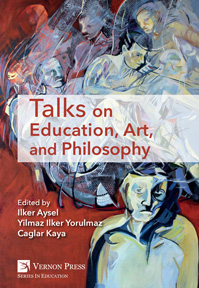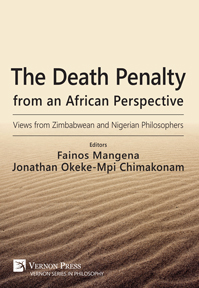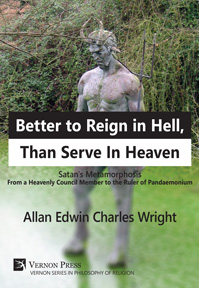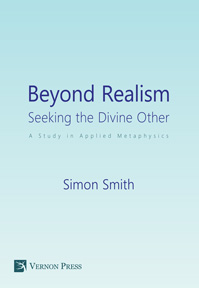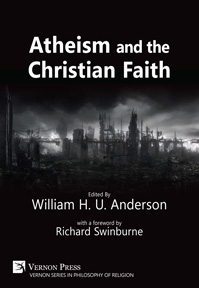Search
Browse
by Publication status
by Subject
Anthropology (26) Art (124) Business and Finance (26) Cognitive Science and Psychology (54) Communication and Journalism (45) Economics (62) Education (66) History (149) Human Geography (22) Interdisciplinary (42) Language and Linguistics (129) Law (16) Music Studies (18) Philosophy (157) Political Science and International Relations (103) Sociology (304) Statistics and Quantitative Methods (20)by Series
Series in Literary Studies (65) Series in Philosophy (59) Series in Education (51) Series in Sociology (42) Series in Politics (32) Series in World History (32) Bridging Languages and Scholarship (31) Series in Language and Linguistics (25) Cognitive Science and Psychology (20) Series in American History (20) Series in Philosophy of Religion (20) Series in Art (19) Critical Perspectives on Social Science (16) Series in Cinema and Culture (16) Curating and Interpreting Culture (15) Series in Critical Media Studies (14) Series on the History of Art (14) Series in Anthropology (13) Series in Business and Finance (13) Economics (13) Series in Music (12) Series in Communication (9) Series in Performing Arts (9) Philosophy of Personalism (8) Series in Law (8) Series in Economic Methodology (7) Series on Climate Change and Society (7) Women's Studies (7) Classics in Economics (6) Series in Economic Development (6) Philosophy of Forgiveness (5) Series in Built Environment (5) Series in Economic History (5) Series in Philosophy of Science (4) Series in Social Equality and Justice (4) Series on the History of Science (4) Serie En Estudios Literarios (3) Serie en Sociología (3) Series in Contemporary History (3) Series in Creative Writing Studies (3) Series in Design (3) The Interdisciplinary Built Environment (3) Serie en Comunicación y Medios (2) Serie en Historia (2) Series in Heritage Studies (2) Series in Innovation Studies (2) Series in Philosophy of Race (2) Serie en Ciencias Políticas (1) Serie en Entorno Construido (1) Serie en Estudios Culturales (1) Serie en Filosofía (1) Serie en Filosofía de la Ciencia (1) Serie en Música (1) Series in Classical Studies (1) Series in Economics of Technological Change (1) Series in Urban Studies (1)by Language
English Spanishby Author
Browsing with filters

Talks on Education, Art, and Philosophy
Edited by
İlker Aysel, Mugla Sitki Kocman University, Turkey et al.
Availability: In stock
164pp. ¦ $56 £43 €48
This book is a collection of reflections on the state of education, art and philosophy, principally in modern Turkey. The contributed chapters include: the identity and social roles of teachers; foreign experts’ opinions concerning the structure of the Turkish education system; repercussions of recent Turkish education policies; a provocative essay on the underdetermination of scientific theories; the role of political power on state theatres in Turkey; the relationship between society and art as seen through the lens of theater; the connections between meliorism and other concepts philosophical such optimism and messianism.
The Death Penalty from an African Perspective
Views from Zimbabwean and Nigerian Philosophers
Edited by
Jonathan O. Chimakonam, University of Pretoria, South Africa
and Fainos Mangena, University of Zimbabwe, Zimbabwe
Availability: In stock
252pp. ¦ $61 £50 €58
This book is about an African philosophical examination of the death penalty debate. In a 21st century world where the notion of human right is primed, this book considers the question of the death penalty in two sub-Saharan African countries namely, Zimbabwe and Nigeria, notorious for their poor human right records. This edited collection comprises of 11 essays from Zimbabwean and Nigerian philosophers. As opinions continue to divide over the retention or abolition of the death penalty, these African philosophers attempt to localise this debate by raising the following questions: What is the meaning of life in the African place? Is it proper to take the human life under any guise at all? Who has the right to take the human life? Can the death penalty be justified on the bases of African cultures? Why should it be abolished? Why should it be retained? Indeed, this book is the first of its kind to engage the tumultuous issue of capital punishment in the postcolonial Africa and from the African philosophical point of view.
Better to Reign in Hell, Than Serve In Heaven
Satan's Metamorphosis From a Heavenly Council Member to the Ruler of Pandaemonium
Allan Wright, University of Alberta
Availability: In stock
169pp. ¦ $57 £47 €54
In this monograph, I argue that Satan was not perceived as a universal malevolent deity, the embodiment of evil, or the “ruler of Pandemonium” within first century Christian literature or even within second and third century Christian discourses as some scholars have insisted. Instead, for early “Christian” authors, Satan represented a pejorative term used to describe terrestrial, tangible, and concrete social realities, perceived of as adversaries. To reach this conclusion, I explore the narrative character of Satan selectively within the Hebrew Bible, intertestamental literature, Mark, Matthew, Luke, Q, the Book of Revelation, the Nag Hammadi texts, and the Ante-Nicene fathers. I argue that certain scholars’ such as Jeffrey Burton Russell, Miguel A. De La Torre, Albert Hernandez, Peter Stanford, Paul Carus, and Gerd Theissen, homogenized reconstructions of the “New Testament Satan” as the universalized incarnation of evil and that God’s absolute cosmic enemy is absent from early Christian orthodox literature, such as Mark, Matthew, Luke, Q, the Book of Revelation, and certain writings from the Ante-Nicene Fathers. Using Jonathan Z. Smith’s essay Here, There, and Anywhere, I suggest that the cosmic dualist approach to Satan as God’s absolute cosmic enemy resulted from the changing social topography of the early fourth century where Christian “insider” and “outsider” adversaries were diminishing. With these threats fading, early Christians universalized a perceived chaotic cosmic enemy, namely Satan, being influenced by the Gnostic demiurge, who disrupts God’s terrestrial and cosmic order. Therefore, Satan transitioned from a “here,” “insider,” and “there,” “outsider,” threat to a universal “anywhere” threat. This study could be employed as a characterization study, New Testament theory and application for classroom references or research purposes.
Beyond Realism: Seeking the Divine Other
A Study in Applied Metaphysics
Simon Smith, University of Surrey
Availability: In stock
342pp. ¦ $65 £55 €60
The meaning of “God-talk” remains the fundamental issue facing religious thinkers today. This study concerns the analogies needed to make sense of that talk. Embracing those analogies signals the application of Austin Farrer’s cutting-edge theology. Almost fifty years after his death, Farrer remains one of the twentieth century’s last great metaphysical minds, his grasp of faith and philosophy unequalled. Having defended religious thought against both Positivist and Process reduction, he pursued his own revision of scholastic tradition, ultimately developing the vital corrective to an overweening impersonalism, one which depersonalises the divine so severs the cosmological connection. Following this course returns us to an earlier tradition, to a metaphysic of persons exemplified in the expressions of lived faith. This draws upon the logic of personal identity: what it means to be, or rather, to become, a person. Hence, journey’s end lies in a Feuerbachian anthropology of theology or ‘anthropotheism’. Like Farrer, Feuerbach used the believer’s language to relocate theology and philosophy within a framework that makes fertile use of anthropomorphic personifications to ‘think’ God. Revisiting the personalist presuppositions of metaphysics in this way throws light on the most vital questions of personal identity. To answer them is to ‘draw’ reality on a grander scale than either realism or consequentialism is capable of. Most importantly, it is locate our place within that image. Doing theology dynamically or psychologically informed – as both Farrer and Feuerbach insisted – means recognising the constitutive role such images play in self-construction. Without active participation in our ideals and aspirations, we cannot become persons at all; participation entails the enactment of our prospective selves. This returns us to the practice of piety: faith in a Godly person. Here we find the reconstruction of Feuerbach’s anthropology as applied theology and, by extension or amplification, the completion of Farrer’s personalist metaphysics.
Atheism and the Christian Faith
Edited by
William H. U. Anderson, Concordia University of Edmonton in Alberta
Availability: In stock
224pp. ¦ $70 £60 €67
Atheism and the Christian Faith is an anthology of the proceedings from a conference of the same name which convened at Concordia University of Edmonton in May 2016. The book represents a wide diversity of subtopics—primarily from a philosophical perspective—including submissions from atheists, agnostics and theists. This combination of topics and perspectives makes the book totally unique. There are arguments for and against theism. The foreword to the book is by Professor Richard Swinburne, Professor Emeritus of Philosophy at Oxford University, who contributes two chapters to the book: “Why Believe That There is a God?” and “Why God Allows Suffering”. The book includes a chapter from renowned astrophysicist, and former student of Stephen Hawkins, Professor Dr. Don Page from the University of Alberta “On the Optimal Argument for the Existence of God”. Atheism and the Christian Faith advances arguments around serious philosophical issues of direct relevance to contemporary society. It will be of interest to a broad range of scholars in philosophy, theology and epistemology.

